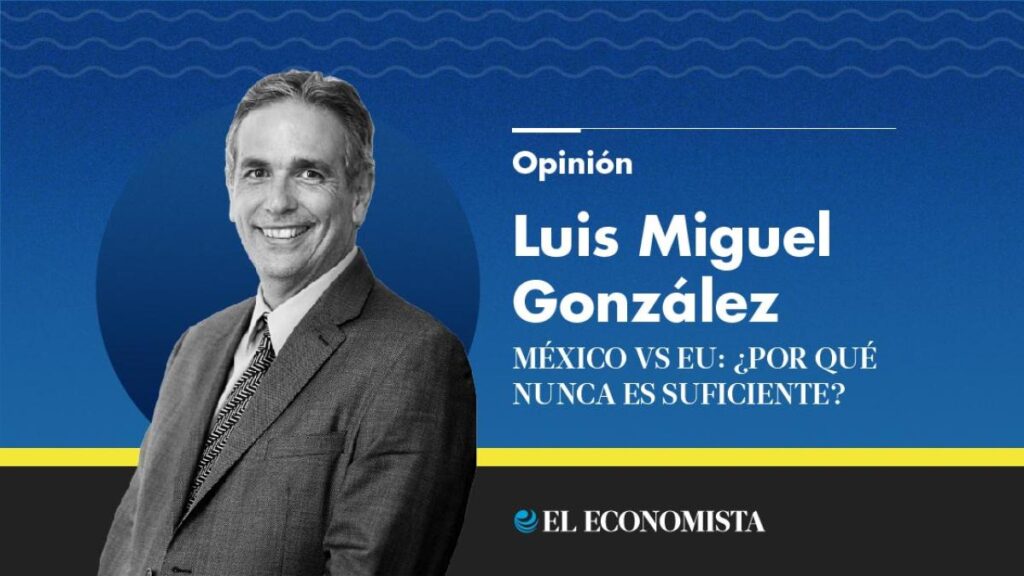Introduction
The relationship between Mexico and the European Union (EU) is a complex web of commerce, security, and migration issues. Mexico constantly faces pressures from the United States, including tariffs, phytosanitary controls, and even a potential tax on remittances. This article aims to shed light on the intricacies of this relationship and why it’s challenging for Mexico to fully satisfy the US.
Key Players and Their Relevance
United States: As Mexico’s northern neighbor and largest trading partner, the US wields significant influence over Mexico’s economic and security policies. The US-Mexico-Canada Agreement (USMCA) is a testament to their intertwined destinies.
European Union: Although not a direct neighbor, the EU’s trade partnership with Mexico and its shared interests in global issues make it an essential player. The EU-Mexico Free Trade Agreement (FTA) is a crucial component of Mexico’s international trade strategy.
Andrés Manuel López Obrador (AMLO): As Mexico’s president since 2018, AMLO has been at the forefront of navigating these complex relationships. His administration’s approach to balancing US demands with EU interests has been a delicate dance.
Trade and Economic Challenges
- Tariffs: The US has imposed tariffs on certain Mexican products, such as steel and aluminum, in response to trade imbalances and national security concerns.
- Phytosanitary Controls: The US has tightened phytosanitary regulations, impacting Mexican agricultural exports and causing friction in trade negotiations.
- Potential Remittance Tax: The US Congress has discussed imposing a tax on remittances sent by Mexican migrants, which would affect millions of Mexican families and generate substantial revenue for the US treasury.
Security and Migration Issues
The US-Mexico border remains a focal point for security and migration concerns. Central American migrants transit through Mexico en route to the US, leading to complex negotiations on border control and migration policies.
- Border Security: The US has pressured Mexico to strengthen its southern border to curb illegal immigration, leading to debates on sovereignty and human rights.
- Migration Policies: Both countries have sought common ground on migration policies, including labor mobility and refugee protection, amidst shifting political landscapes.
The EU Factor
While the US exerts considerable influence, the EU’s trade partnership with Mexico adds another layer of complexity. Balancing relations with both blocs requires deft diplomacy from Mexico.
- Trade Agreements: The EU-Mexico FTA is vital for Mexico’s economic growth, and any potential conflicts with the US must be carefully managed to avoid jeopardizing this crucial relationship.
- Global Issues: Shared concerns over climate change, human rights, and global governance create opportunities for collaboration between Mexico and the EU, further complicating Mexico’s balancing act with the US.
Key Questions and Answers
- Why is it so difficult for Mexico to satisfy the US? The multifaceted nature of the US-Mexico relationship, encompassing trade, security, and migration, makes it challenging for Mexico to meet all US demands without negatively impacting its ties with the EU.
- Who are the key players in this relationship? The United States, European Union, and Mexico’s president Andrés Manuel López Obrador (AMLO) are central figures in navigating this complex web of interests.
- What are the main trade and economic challenges? Tariffs, phytosanitary controls, and potential remittance taxes pose significant hurdles in the US-Mexico economic relationship.
- How do security and migration issues affect the relationship? Border security and migration policies create ongoing tensions between the US and Mexico, requiring delicate negotiations.
- What role does the EU play in this dynamic? The EU’s trade partnership with Mexico adds complexity to the relationship, as Mexico seeks to balance its ties with both blocs.






